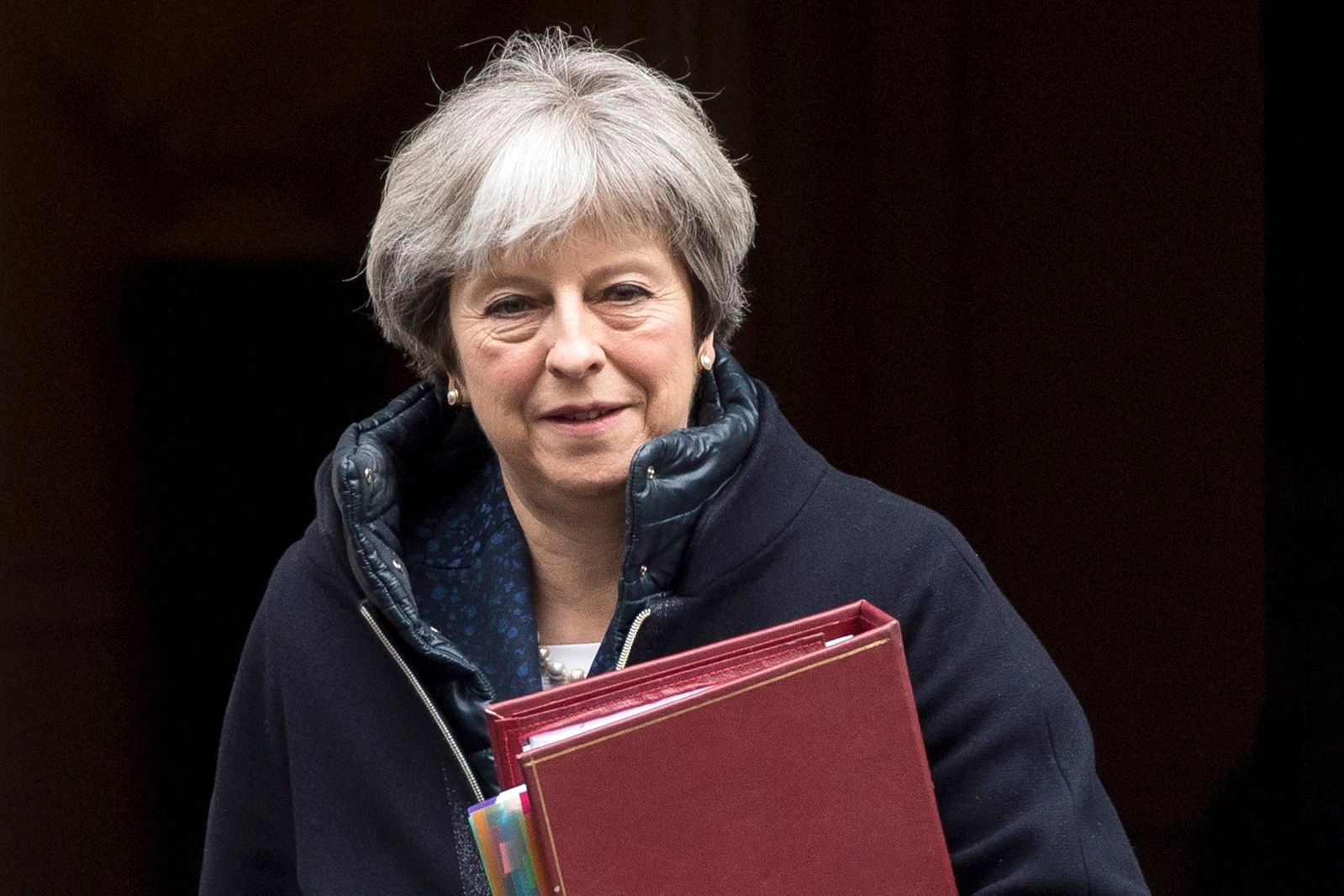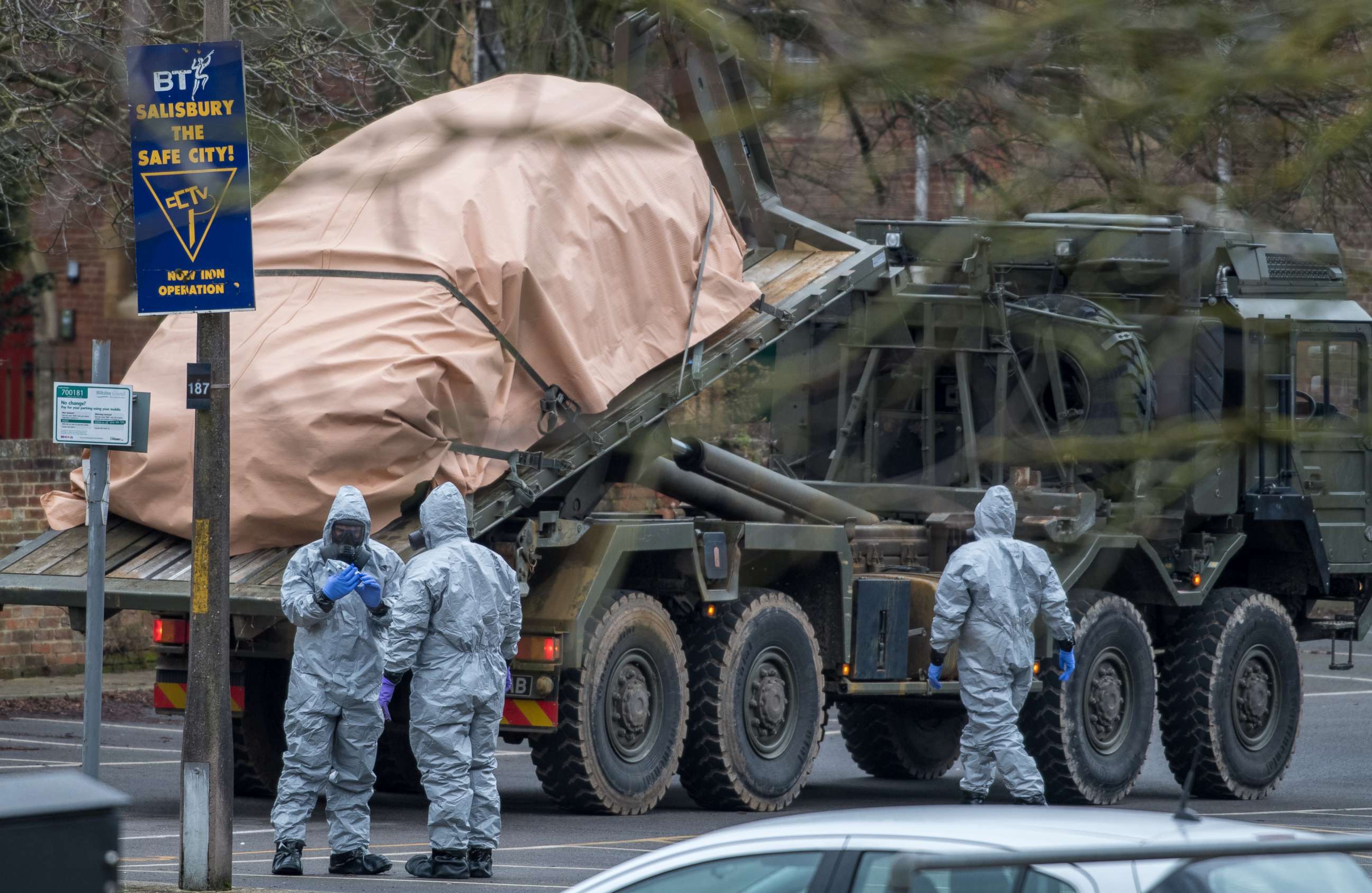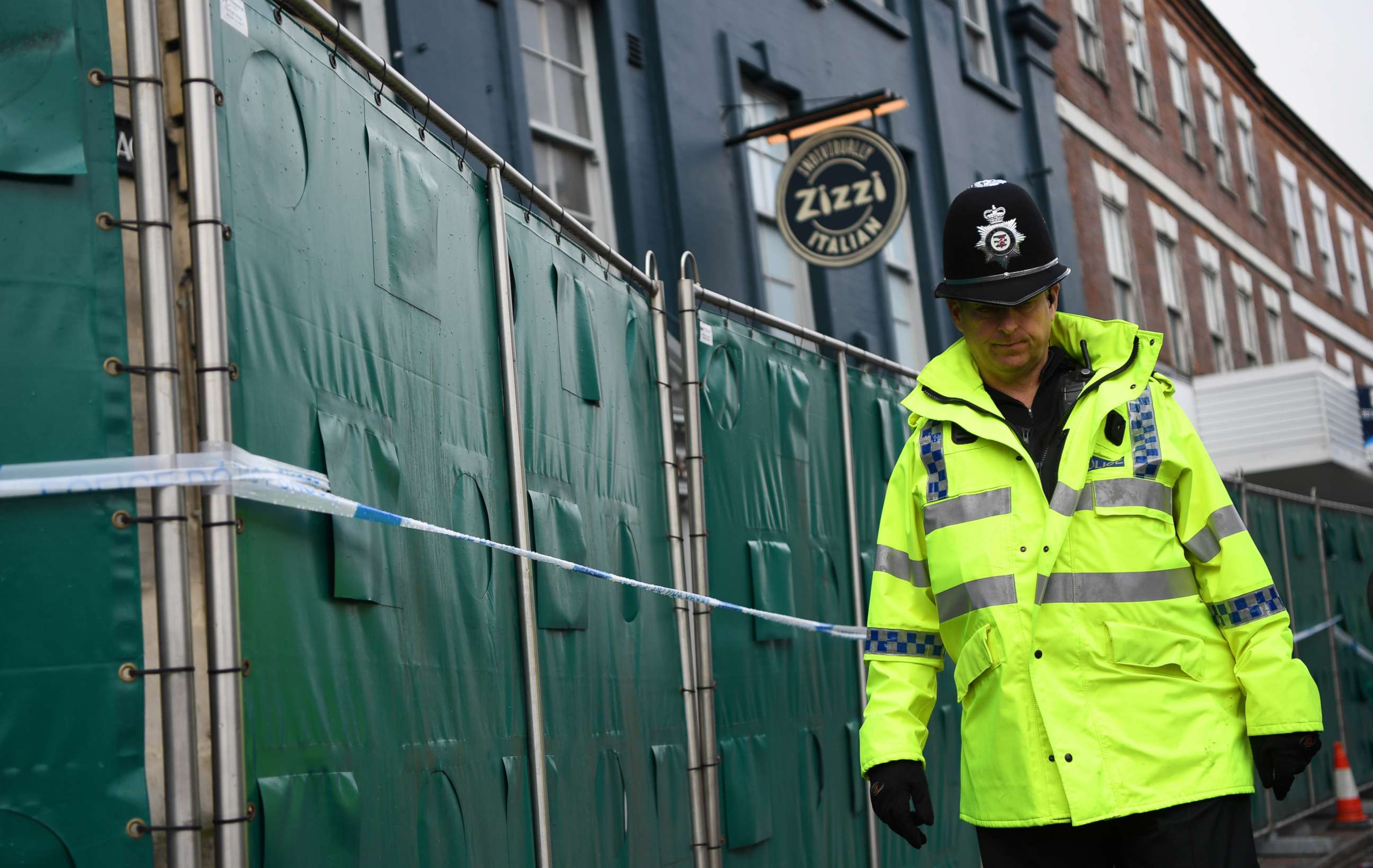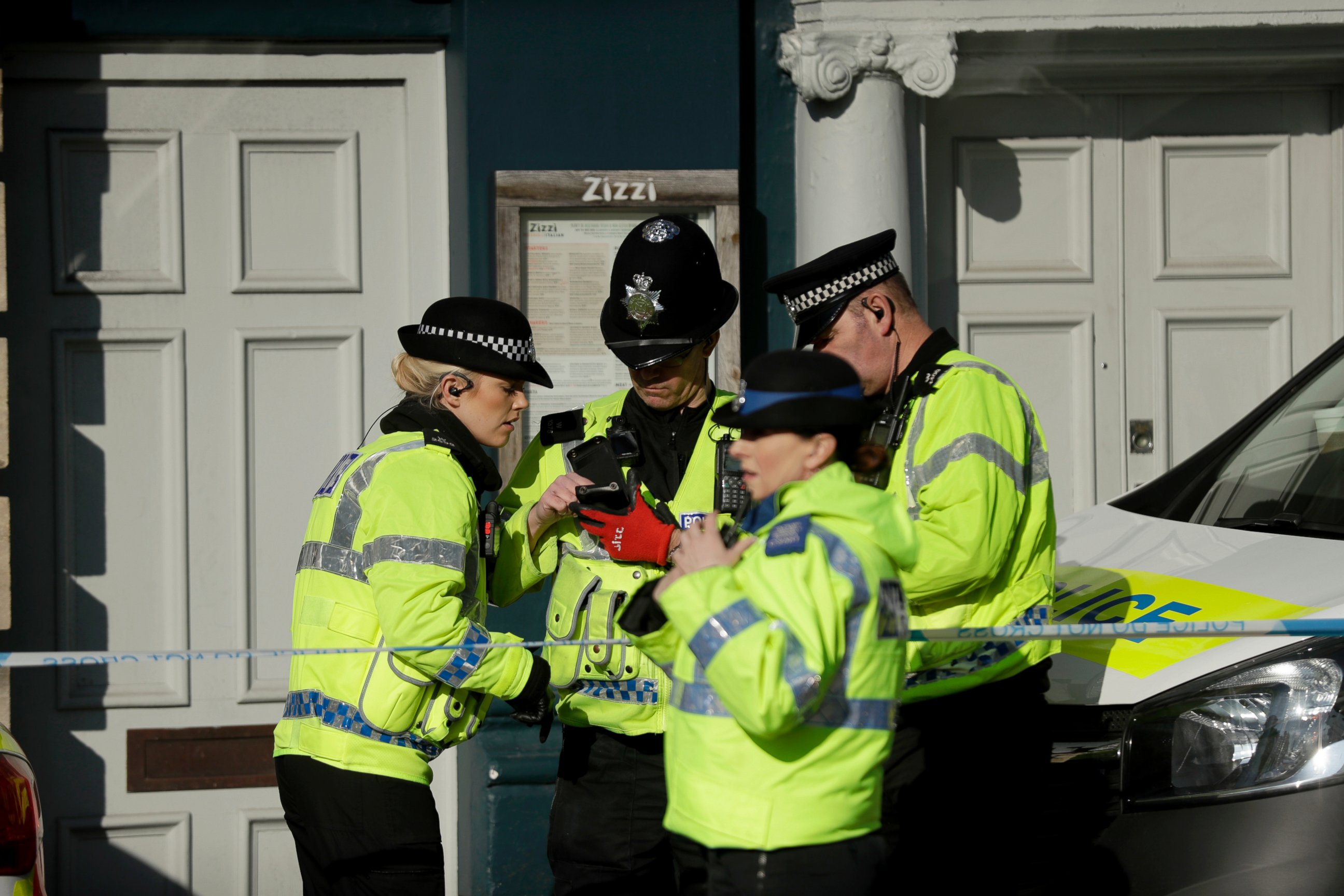UK prime minister chairs national security meeting on poisoned former spy
One British lawmaker said evidence is pointing toward Russian involvement.
LONDON -- Political pressure is mounting on U.K. Prime Minister Theresa May to take firm action against the perpetrators of the nerve agent attack on a former Russian spy and his daughter in Salisbury, England.
May is chairing a National Security Council with government ministers, attended by senior defense and intelligence officials, who have been compiling information on the attack that took place on March 4. It is the second such government meeting since the attack took place.
The former spy, Sergei Skripal, 66, and his daughter Yulia Skripal, 33, were having lunch in Salisbury that day.

Tom Tugendhat, a British politician who sits on the government’s Foreign Affairs Committee, told BBC Radio on Monday morning that evidence was mounting that indicated Russian involvement.

Russia has denied any involvement in the attack against the Skripals, and has accused the government of waging an anti-Russian campaign. The Russians have also said they would assist with the investigation if asked by the British authorities.
Skripal was a retired Russian double agent, who was convicted in Russia in 2006 of spying for British intelligence. In 2010 he was involved in a prisoner exchange alongside the Americans after 10 sleeper agents were discovered spying for Russia in the U.S.

Skripal was pardoned the following year and has been living in the U.K. under his own name. His daughter Yulia, who lives in Russia, was visiting her father when the two fell suddenly ill and collapsed on a park bench in the city center, having visited an Italian restaurant and a nearby pub.
Both areas have been cordoned off by police for a week. Police said that "traces" of the nerve agent were found at Zizzi’s restaurant.

On Sunday, a week after the incident took place, authorities asked hundreds of members of the public who visited either location on March 4 to thoroughly wash and wipe down their personal belongings, but stressed there was a low risk to the public.
Military personnel are assisting local police and counterterrorism forces in Salisbury, with chemical warfare specialists and elite Royal Marines troops among the units deployed. Hundreds of investigators and counterterror experts, as well as forensic specialists from a nearby military research facility, are involved in the investigation.




